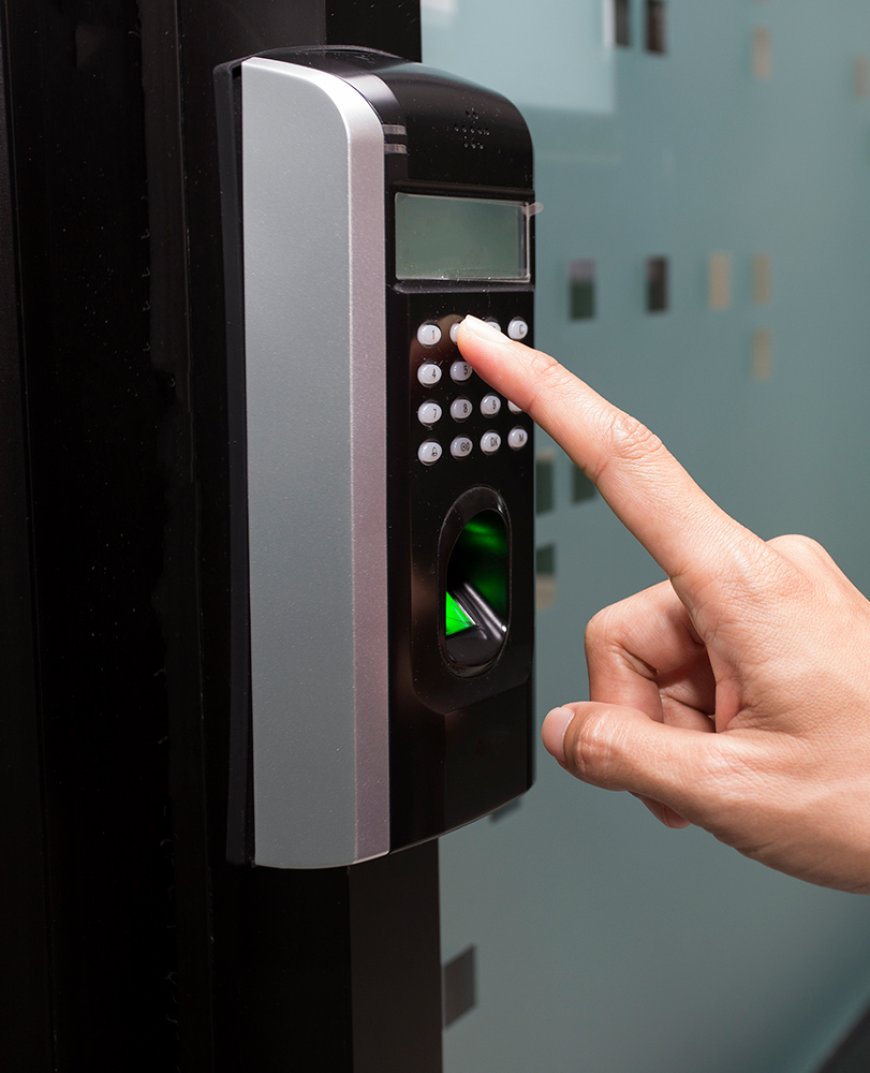From Mosques to Malls: How Time Attendance Systems Adapt to Multi-Sector Businesses in the UAE
Discover how smart attendance systems in Dubai are reshaping workforce tracking across diverse sectors—from retail and hospitality to religious institutions.

Introduction
In today's diverse and fast-paced commercial landscape, implementing a Time Attendance Solution in Dubai has become essential for businesses and institutions of all sizes. From bustling shopping malls and retail outlets to religious institutions and government offices, organizations across the UAE face unique attendance management challenges. What unites them all is the need for accuracy, adaptability, and compliance.
Modern attendance systems are evolving beyond basic punch-ins. They now offer multi-industry features that accommodate flexible shifts, cultural practices, and multilingual workforces. This article explores how attendance systems adapt to various sectors in the UAEensuring both operational efficiency and employee satisfaction.
The Growing Demand for Sector-Specific Attendance Solutions
Dubais economic growth has diversified its business ecosystem. With industries ranging from retail and hospitality to logistics, education, and religious organizations, attendance tracking cant follow a one-size-fits-all approach.
Organizations demand time attendance solutions that:
-
Align with their operational hours
-
Respect cultural and religious norms
-
Scale across multiple branches
-
Support mixed employment types (full-time, part-time, seasonal)
Retail and Mall Operations: Managing High Traffic and Shift Variability
Dubais retail sector operates nearly 24/7 in some areas, especially during holiday seasons or events like Dubai Shopping Festival. Malls and retail establishments have complicated staff rotations because of:
-
Rotating shifts and long operational hours
-
High turnover and seasonal hiring
-
Multiple locations under the same management
Attendance Features for Retail:
-
Multi-location employee tracking
-
Mobile and biometric clock-ins
-
Real-time shift updates and alerts
-
Integration with payroll and HR tools
With smart attendance systems, mall administrators can manage large workforces with minimal manual input, ensuring timely attendance reports and compliance with UAE labor laws.
Hospitality Sector: Flexibility Meets Precision
Hotels, resorts, and F&B outlets thrive on flexibility. Staff may work irregular shifts, double duties, or be called in at short notice. In these situations, inaccurate timekeeping can result in unhappy employees, payroll irregularities, and even legal problems.
Attendance Features for Hospitality:
-
Customizable shifts and roles
-
Overtime and night shift tracking
-
Department-wise scheduling (housekeeping, front desk, kitchen)
-
Mobile-enabled punch-ins for staff in transit
These solutions reduce the administrative burden and ensure that all attendance records are accurate, even during peak seasons.
Religious Institutions and Mosques: Respecting Sacred Schedules
Dubai is home to a significant number of religious institutions, each operating on a schedule influenced by prayer times and cultural traditions. Attendance solutions for such institutions must accommodate:
-
Flexible working hours
-
Breaks for daily prayers
-
Special scheduling during Ramadan or Friday prayers
Attendance Features for Religious Institutions:
-
Prayer-time integration
-
Adjusted shift durations during Ramadan
-
Minimal manual intervention with automated scheduling
These systems promote a respectful work environment that upholds both operational requirements and spiritual observances.
Educational Institutions: Attendance for Faculty and Staff
Schools, colleges, and universities in Dubai require attendance tracking for both teaching and non-teaching staff. Educational schedules vary by semester, course, and faculty, making it challenging to monitor attendance without a structured system.
Attendance Features for Education:
-
Department-specific attendance tracking
-
Academic calendar alignment
-
Substitute and temporary staff logging
-
Real-time attendance dashboards for administration
With these tools, institutions gain transparency and accountability, ensuring proper time utilization and easier reporting.
Healthcare: Precision, Compliance, and High Stakes
Hospitals and clinics in the UAE demand strict compliance with time tracking due to patient care standards and legal responsibilities. Attendance solutions here must handle:
-
24/7 rotating shifts
-
Emergency staff call-ins
-
Departmental distinctions (ER, pharmacy, admin)
Attendance Features for Healthcare:
-
Shift overlap tracking
-
Automated scheduling for 24/7 care
-
Alerts for absenteeism in critical departments
-
Biometric verification for secure access
Such features ensure that no time or personnel are misplaced in this high-responsibility sector.
Construction and Field Services: Remote Access and Real-Time Sync
Field-based industries, such as construction and logistics, operate across remote sites. Traditional attendance systems are impractical here. Companies need solutions that offer:
-
Geo-fencing and GPS tracking
-
Offline check-in capabilities
-
Time logs synced across multiple job sites
Attendance Features for Field Work:
-
Location-based clock-ins
-
Real-time syncing to HQ systems
-
Equipment or task-based time tracking
These ensure that attendance is accurately loggedeven without physical infrastructure like biometric scanners.
Multi-Sector Integration: One System, Multiple Modules
As many businesses diversify into multiple sectors or operate in more than one industry, unified attendance systems with modular configurations are becoming popular.
A company that owns both retail outlets and hospitality chains can:
-
Use one centralized dashboard for all branches
-
Define sector-specific rules per location
-
Create custom user access levels for HR across units
This ensures that regardless of complexity, attendance tracking remains streamlined, compliant, and secure.
The Role of Localization in UAE Attendance Systems
Given Dubais multicultural workforce, time attendance systems must support localization. This includes:
-
Language support (Arabic, English, Hindi, Urdu, etc.)
-
Islamic calendar and prayer-time integration
-
Public holiday configurations by emirate
Localization ensures better adoption by staff and compliance with cultural norms.
Future Outlook: Smart Scheduling and AI-Driven Optimization
As AI continues to grow in business systems, the next wave of attendance solutions will:
-
Predict absenteeism patterns
-
Recommend optimal staff allocations
-
Auto-adjust shifts based on demand and availability
Sectors like retail and hospitality stand to benefit significantly from this predictive intelligence, ensuring not just compliance but improved workforce efficiency.
Conclusion
From mosques to malls, Dubais business ecosystem is incredibly diverse, and so are its timekeeping needs. A Time Attendance Solution in Dubai must be dynamic, flexible, and intelligentcapable of adapting to different industries while ensuring data accuracy, legal compliance, and operational efficiency.
By embracing multi-sector-compatible attendance systems, organizations can streamline operations, support their workforce better, and remain future-ready in an increasingly digitized and diverse economy.








































